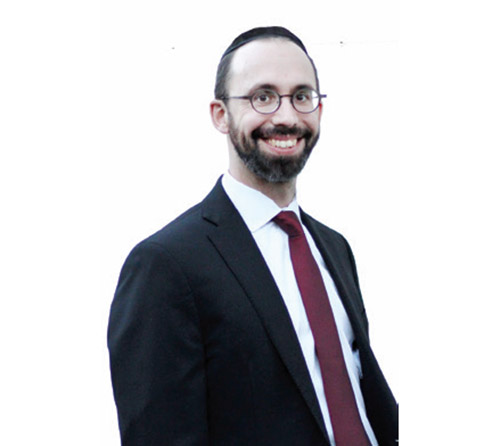
Behar-Bechukosai
When I was a teenager learning in Eretz Yisrael, I returned to America in the summer to earn money for the following year in yeshiva. One summer I was working as an intern for an investor on Wall Street. The salary was quite good, but it was not enough to cover all my expenses for the following year. Still, the internship was valuable, and the salary was better than anywhere else. As I thanked my boss on my last day, telling him I was going back to Israel to study, he handed me a wad of bills saying this was a “bonus.” When I came home to count the bills, I was floored: it totaled the exact amount of money I still needed for the next year.
I often think of this episode when learning the laws of Shmita (leaving farmland fallow every seventh year). Truthfully, it’s hard for us in the Diaspora to appreciate the challenges of Shmita, because how many Jewish farmers do we know? Yet, anyone who owns his own business can begin to visualize what it would mean to close shop for a week, let alone for an entire year. What will happen with his clients? How will he pay the mortgage or rent with no money coming in? How will he survive such a challenge? It’s virtually inconceivable. And really…it’s not just a year. The next year, he has to start from scratch with nothing on the shelf and no money in the bank.
It’s easy to understand why the Midrash labels the topic of Shmita as the paradigm of placing one’s reliance on Hashem.
The commentators ask a very compelling question. The Torah says explicitly: “If you shall say ‘What shall I eat during Shmita’ I will give a blessing and the sixth year will bear enough fruit to eat for three years.” How could anyone then be worried? The bumper crop of the sixth year will produce three times the normal amount, filling the storehouses. What is the major need for bitachon (faith) in Hashem?
The Kli Yakar answers that Hashem can give blessings in different ways. One of them is to make a small amount last for a long time. For example, when I was in my teens and twenties I had an extremely fast metabolism. I needed to eat large quantities of food for each meal. Yet, I wouldn’t gain a single pound! When I got married my wife had to cook as if we were four! On the other hand, I had a friend who was full after eating just one slice of bread. This is what Rashi is referring to when he explains the blessing in Parshas Bechukosai—the food will be blessed in one’s stomach. Just a little will fully suffice.
This is the blessing of Shmita. The produce of the sixth year will be the regular amount, but it will last for three years. This requires bitachon—a belief that Hashem will provide as promised, even though it looks like the blessing is not there. It takes true faith to expect the income of just one year to stretch for three. It would seem that this degree of bitachon is reserved only for people on a very high level; however, the requirement of Shmita is for every Jew. Apparently, then, every Jew is able to be on this level with the proper effort.
We are confronted with concerns and challenges every day. How will we afford our current and future expenses? How will we be able to fulfill the demands of our jobs? If we follow the lesson of Shmita—to place our reliance on Hashem—we may then find that the resources we have will, with Hashem’s help, be more than adequate to deal with all our issues and needs. Hashem has many ways and means to provide for our needs. Let us follow the advice of King David in Tehillim (55:23), “Cast your burdens on Hashem and He will sustain you.”
By Rabbi Baruch Bodenheim
Rabbi Baruch Bodenheim is the associate rosh yeshiva of Passaic Torah Institute (PTI)/Yeshiva Ner Boruch. PTI has attracted people from all over northern New Jersey, including Teaneck, Bergenfield, Paramus, Rockaway and Fair Lawn. He initiated and continues to lead a multi-level Gemara learning program. Recently he has spread out beyond PTI to begin a weekly beis midrash program with in-depth chavrusa learning in Livingston and Springfield. This year he joined Heichal Hatorah in Teaneck as a Gemara iyun rebbe. His email is rb@ptiweb.org.









